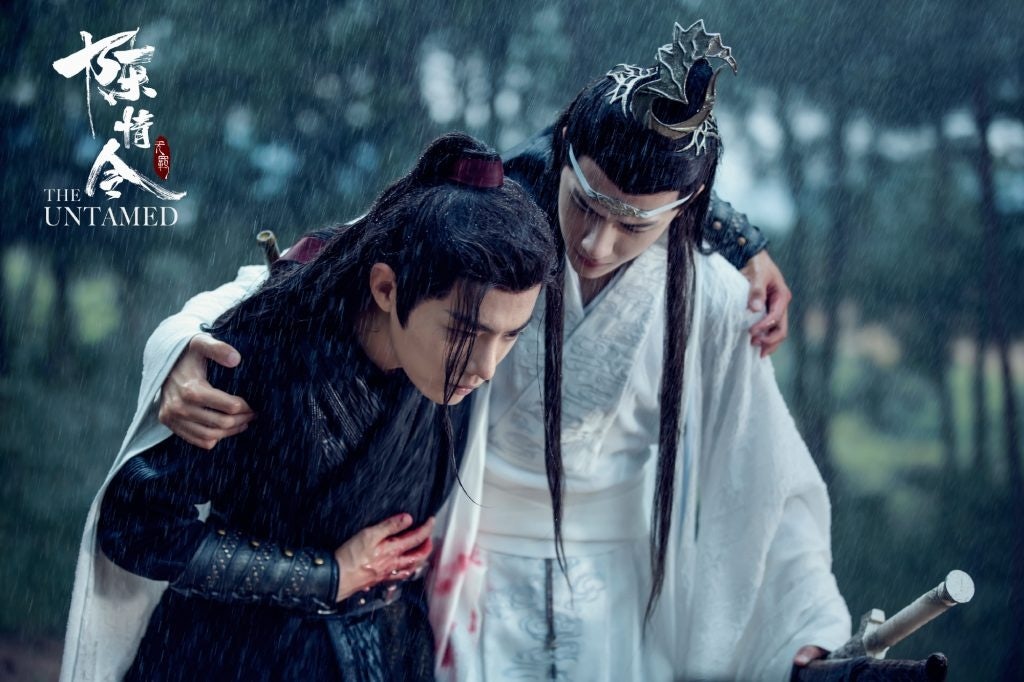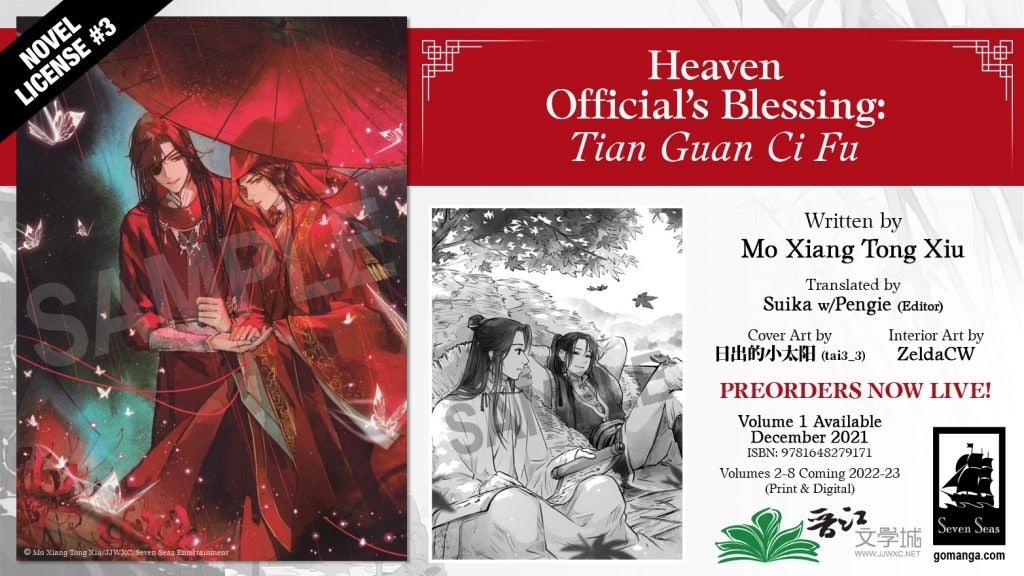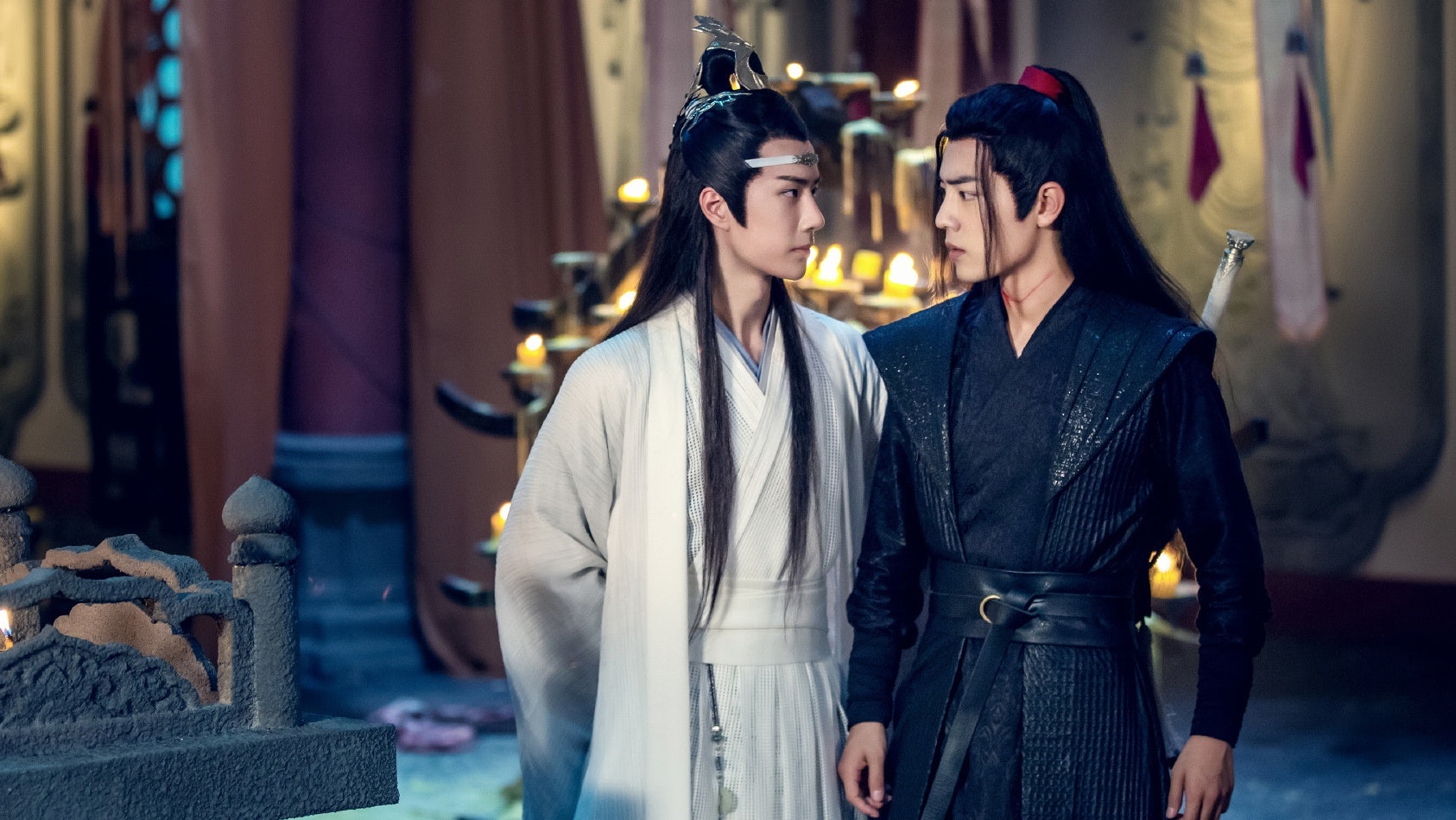With their attractive male leads and subtle gay romance, China’s “Boys’ Love” or BL dramas have become addictive to audiences. Whether it's The Untamed, known for its sumptuous costumes and smoldering gazes, or Addicted, a high school web series with a more overt portrayal of sexuality, the genre has developed a cult following even under the government’s watchful eye.
And Chinese actor Xiao Zhan has become the movement's undisputed poster boy. On May 6, he was named a spokesperson for L'Oréal Professionnel, the beauty giant’s high-end salon line, adding to a long list of ambassadorships that includes Tod’s, Gucci, Nars, Bosideng, and Li Ning. The 30-year-old star continues to profit off his role in The Untamed, a mega-popular fantasy show that racked up 200 million views per day and over 70 million yuan in viewing fees on Tencent during its final month of broadcast in 2019.
The show, which follows the adventures of two soulmates as they uncover a dark mystery, catapulted Xiao Zhan to global fame and helped him amass over 30 million followers on Weibo. Xiao Zhan’s co-star, Wang Yibo, similarly became a household name following its release, signing contracts with brands such as Anta, Chanel, and G-Shock and entering Forbes China’s Celebrity 100 and 30 Under 30 list for the first time.

Word of Honor, which racked up 1.2 billion views when it was exclusively broadcast on Youku from February to March 2021, served as actor Gong Jun’s big breakthrough, making him one of the faces of Tiffany & Co., Louis Vuitton, and Hogan.
There’s a good reason why so many luxury brands are turning to BL stars. According to Ralph Lauren’s CEO, the collaboration with Xiao Zhan to launch fragrances in China last December resulted in the sale of 40,000 units of Ralph's Club fragrance in a 6-hour period. Luxury watchmaker Zenith reported more astonishing results a few months prior: “When we announced [Xiao Zhan] at the beginning of July, we got 342 million views on Weibo,” said CEO Julien Tornare to the New York Times. “Then, within a few hours, we got 9 million views of our video on the announcement. And we sold more watches in 24 hours than in a whole month.”

However, it is largely because of these overzealous fans that the future of BL now hangs in the balance. (The risque subject matter doesn’t help either.) In September 2021, China’s National Radio and Television Administration held a meeting urging the entertainment industry to boycott the adaptation of BL novels amid a broader crackdown on celebrities and “toxic” fandom culture. In January 2022, Beijing’s National Radio and Television Administration followed this up with a ban on BL dramas in the name of a “clean and healthy cyberspace,” bringing the production of live-action dramas to a halt.
Yet, China’s BL genre has already grown so popular that it has spread beyond the country’s borders, ironically becoming part of Beijing’s soft power. Besides animated and live-action series — which overseas fans can browse on Netflix — BL literature (known as danmei) has also crept into mainstream culture. After getting authorized English releases in December 2021, three novels by the author Mo Xiang Tong Xiu (MXTX) landed on the New York Times’ Paperback Trade Fiction Bestsellers list in the first week of their release, reflecting the appetite for both queer romance and transnational texts in the Western market.

Of course, China isn’t the only country cranking out BL stories (in fact, danmei is inspired by Japanese Yaoi, which is akin to the West’s slash fiction). Thailand is also a major BL drama producer, releasing 57 series between 2014 and 2020, as reported by the South China Morning Post. South Korea is another, with Chinese audiences recently showing love to the mini-series Semantic Error and using the show’s hashtag on Weibo over 850 million times before it was removed “according to the relevant laws.”
Although the 2022 ban may slow the production of new TV shows and films, it is unlikely to scrub the genre altogether. As with past regulations targeting the depiction of same-sex relationships in Chinese media, gay elements will likely be further downplayed as bromance or friendship. Plus, there are still a few highly anticipated series in the works: a live adaptation of the BL novel Heaven’s Official Blessing by MXTX, starring boy group R1SE’s Zhai Xiaowen, reportedly wrapped filming earlier this year, although no release date has been set.
As such, brands should keep an eye on how the space evolves. While Beijing may not love Boys’ Love, consumers in China and the rest of the world still do — and will spend to prove it.

